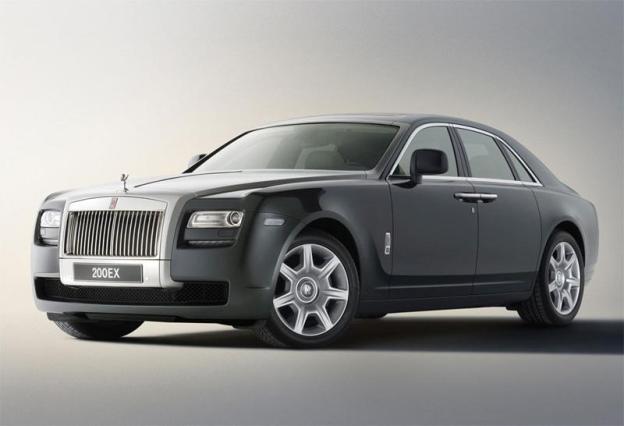 A Rolls-Royce SUV might sound about as likely as Lamborghini minivan, but company officials aren’t ruling it out. While there are no current plans to build an SUV bearing a Spirit of Ecstasy hood ornament, Rolls won’t completely rule out the idea either.
A Rolls-Royce SUV might sound about as likely as Lamborghini minivan, but company officials aren’t ruling it out. While there are no current plans to build an SUV bearing a Spirit of Ecstasy hood ornament, Rolls won’t completely rule out the idea either.
“The Rolls-Royce philosophy is very clear, and that is that we will never say never to anything,” Rolls Asia Pacific regional director told CarAdvice.
An SUV isn’t even being discussed, but that fact that Rolls might be willing to entertain the idea is pretty surprising for such a conservative company.
Rolls-Royce isn’t interested in chasing sales, even less so than other low volume manufacturers like Ferrari, Lamborghini, and Bentley. It builds what it considers to be the ultimate luxury car, regardless of conventional product cycles.
The downsized Ghost sedan, which is based on the BMW 7 Series, has been the biggest departure from tradition in recent years. It’s considered a more mainstream “baby” compared to the full-size, uncompromising Phantom.
With the launch of the Ghost-based Wraith coupe at the 2013 Geneva Motor Show, Rolls-Royce is set with new models for now. A new Rolls takes four to five years to develop, and without anything on the drawing board right now, it would take awhile for a theoretical SUV to appear if the company suddenly felt the need.
Does the world need a Rolls-Royce SUV? The two-door Phantom Drophead Coupe (convertible to us proles) is already 220.8 inches long, just two inches shorter than a Chevrolet Suburban. So people already think of girth when they think of Rolls.
However, it’s unlikely that the traditional Rolls customer would ever take their SUV off-road, and chauffeurs may not value a tall driving position as much as civilian drivers.
It’s also hard to see how Rolls could build a uniquely British SUV that performs well, swaddles its occupants in luxury, and is better than the Land Rover Range Rover. Land Rover invented the luxury SUV segment, and the current Range Rover’s near-perfection shows that.
Regardless, a Rolls-Royce SUV would have a lot of competition. Lamborghini is working on the Urus, and Spyker is working on bringing its D8 Peking-to-Paris to production. Bentley may also build an SUV, despite the complete panning of its 2012 EXP 9 F concept.
The fact that none of those vehicles are in showrooms yet demonstrates how flimsy the ultra-lux SUV segment actually is, despite all the confident talk. Still, no one thought the Porsche Cayenne would ever be a sales success. Maybe Rolls’ “never say never” attitude is prudent after all.
Editors' Recommendations
- Check out Spectre, Rolls-Royce’s first all-electric car
- How Johnny Cash’s Rolls Royce transformed into a Tesla-powered EV


